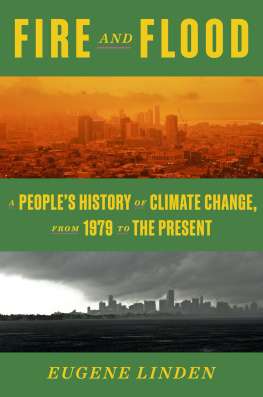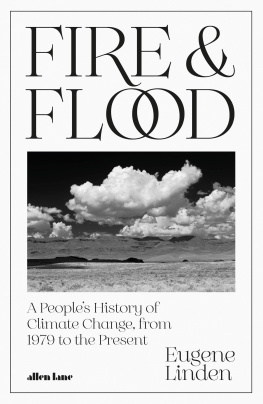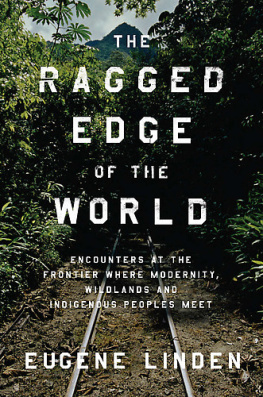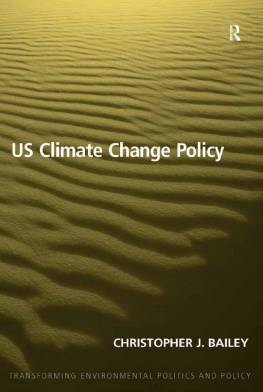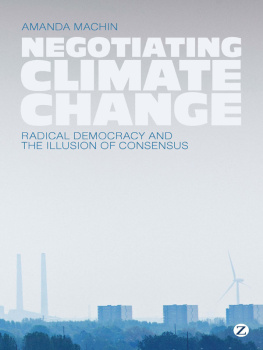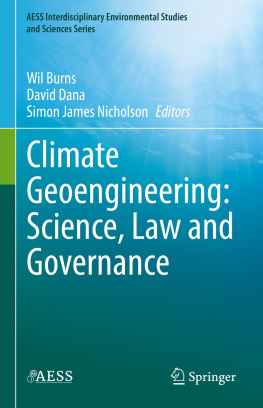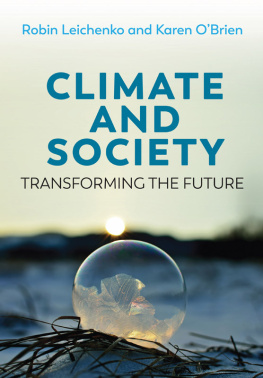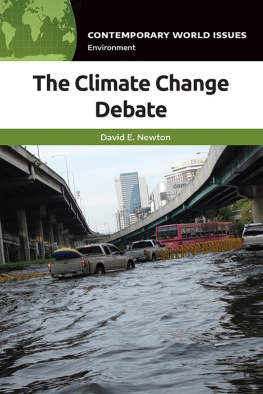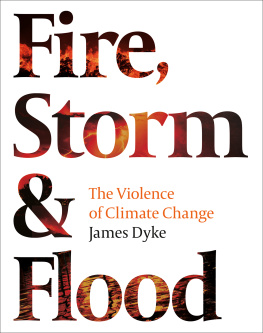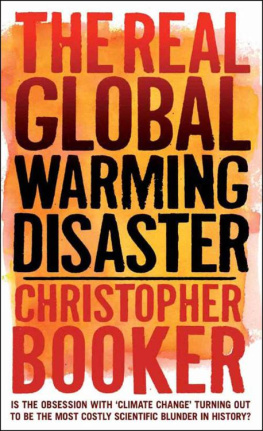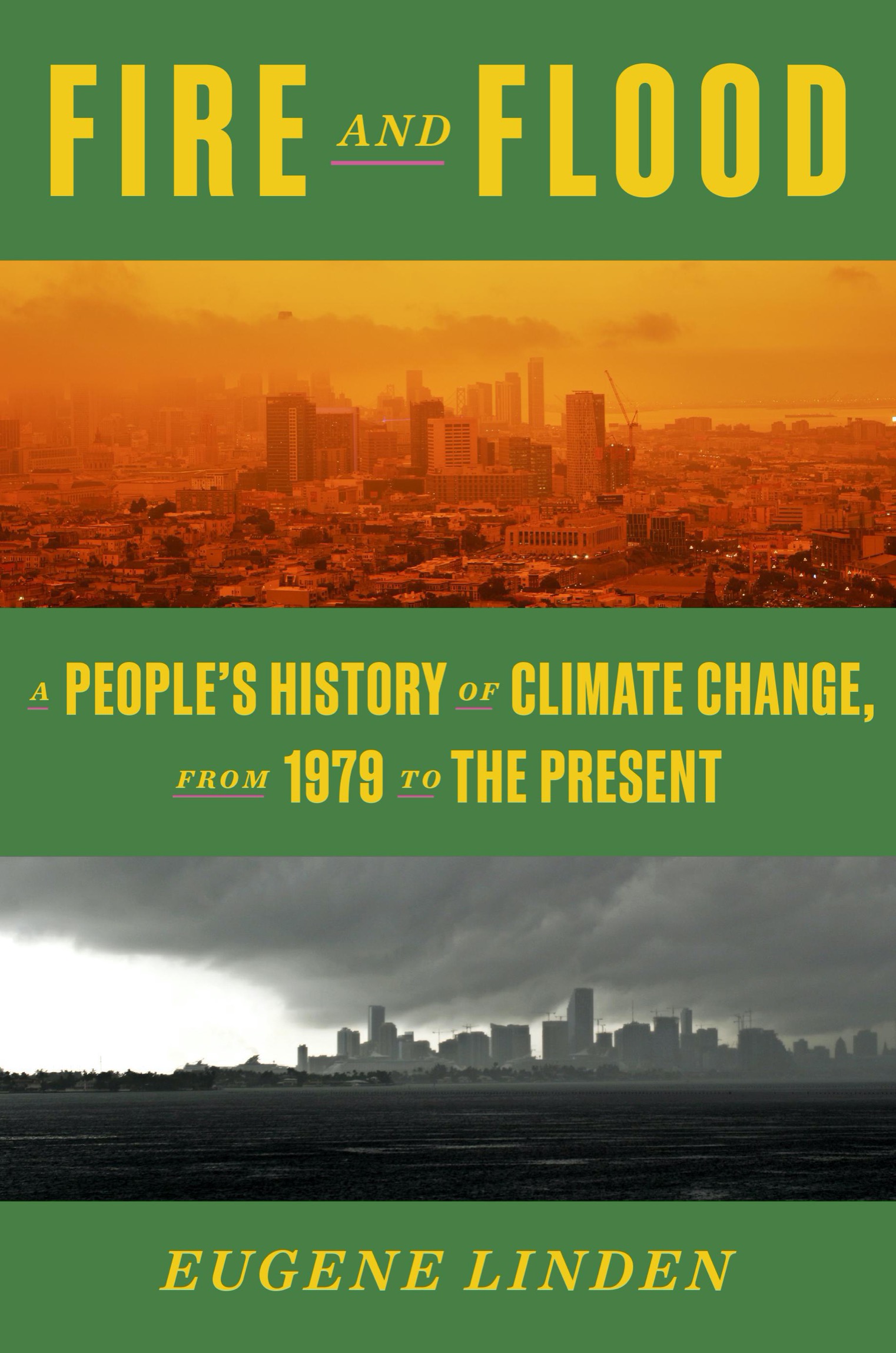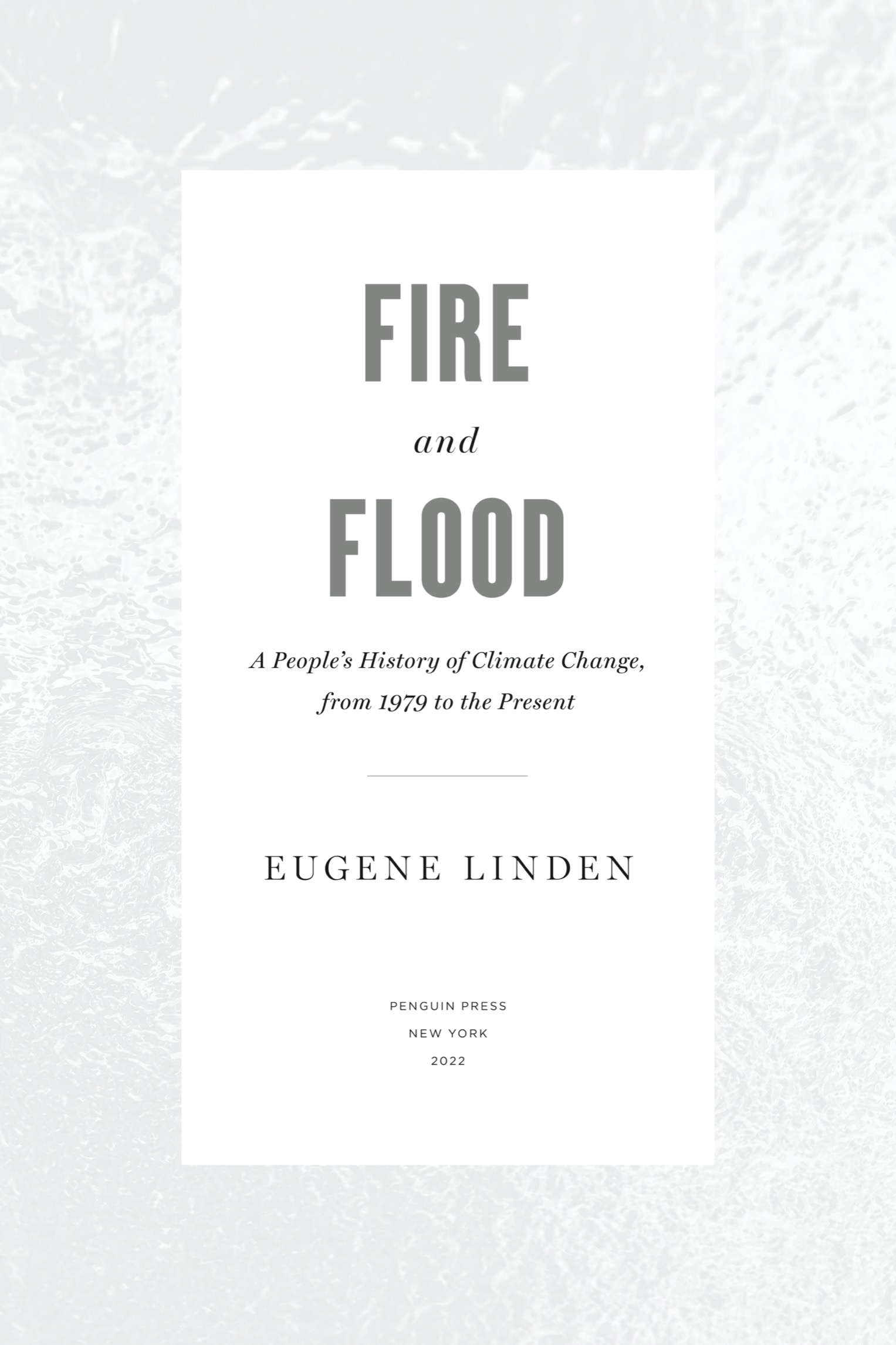ALSO BY EUGENE LINDEN
Deep Past
The Ragged Edge of the World
The Winds of Change
The Octopus and the Orangutan
The Parrots Lament
The Future in Plain Sight
Silent Partners
Affluence and Discontent
The Alms Race
Apes, Men, and Language
PENGUIN PRESS
An imprint of Penguin Random House LLC
penguinrandomhouse.com
Copyright 2022 by Eugene Linden
Penguin Random House supports copyright. Copyright fuels creativity, encourages diverse voices, promotes free speech, and creates a vibrant culture. Thank you for buying an authorized edition of this book and for complying with copyright laws by not reproducing, scanning, or distributing any part of it in any form without permission. You are supporting writers and allowing Penguin Random House to continue to publish books for every reader.
library of congress cataloging-in-publication data
Names: Linden, Eugene, author.
Title: Fire and flood: a peoples history of climate change, from
1979 to the present / Eugene Linden.
Description: New York: Penguin Press, 2022. | Includes bibliographical references and index.
Identifiers: LCCN 2021021241 (print) | LCCN 2021021242 (ebook) |
ISBN 9781984882240 (hardcover) | ISBN 9780593295724 (ebook)
Subjects: LCSH: Climatic changes. | Climatic changesGovernment policy. |
Climatic changesEconomic aspects.
Classification: LCC QC903 .L585 2022 (print) | LCC QC903 (ebook) | DDC 304.2/8dc23
LC record available at https://lccn.loc.gov/2021021241
LC ebook record available at https://lccn.loc.gov/2021021242
Cover design: Jonathan Bush
Cover images: Getty Images
Designed by Amanda Dewey, adapted for ebook by Shayan Saalabi
pid_prh_6.0_139653426_c0_r0
To the memory of those prophetic scientists who early on warned of the enormous costs of tampering with the atmosphere, a group that includes Wallace Broecker, Sherwood Rowland, Ralph Cicerone, Paul Crutzen, Stephen Schneider, and Hans Oeschger, among many others; and also to those scientists still living who were first responders to the climate crisis, including George Woodwell, Mario Molina, and Veerabhadran Ramanathan; and finally to those scientists, notably Michael Mann, who fought back against the smears and harassment inflicted by climate deniers.
We should have listened to all of you.
What is the use of having developed a science well enough to make predictions if, in the end, all were willing to do is stand around and wait for them to come true?
F. SHERWOOD ROWLAND in his speech accepting the Nobel Prize in Chemistry in 1995
CONTENTS
PREFACE
Call it what you like, climate change or global warming, its here and its going to get worse, very likely far worse. Sixty years from now, people may wonder what happened in the past that allowed this nemesis to ruin the world. What were the decisions, or lack thereof, the missed opportunities, the political failures that caused a technologically advanced civilization to continue to alter earths climate even as its leaders knew better? These are the questions this book will attempt to answer.
More than four billion people have been born since climate change became a mainstream issue in 1988. More than five billion people have been born since the issue first appeared on President Jimmy Carters agenda. Billions of people, now well into adulthood, have lived their entire lives under the specter of global warming. During the past decade, average global temperatures crept up more than 1 degree Celsius over average levels before the Industrial Revolution. In fact, average temperatures are now regularly over the upper bound of what has prevailed since the dawn of the Holocene epochthe period, starting 11,600 years ago, during which a human-friendly climate nurtured the dawn of civilization and allowed human numbers to grow from roughly five million to nearly eight billion. Noting this inflection point, renowned climate modeler Stefan Rahmstorf put up a sardonic post on Facebook congratulating humans because we have now left the Holocene. Several hundred million people have recently been born into a new climate epoch.
Roughly one-third of the worlds population is unaware that global warming is happening, and the majority of those who are aware that we are changing the climate are either insufficiently alarmed at the prospect or already too fatalistic.
So here we are, in the first innings of a rapid climate change event that is already getting very costly. Was this predicted? Yes, perhaps more than any disaster in history. Could this have been averted? This turns out to be a charged question. We have had more than thirty years of warnings, innumerable conferences and scientific gatherings, even ratified treaties on preventing a climate catastrophe. In recent years, however, the idea that we never had a chance has gathered strength. This argument holds that in the early 1990s, when the scientific consensus on the threat solidified, renewables were too expensive and inefficient to replace fossil fuels and, furthermore, that people did not consider global warming to be an imminent threat, which meant that there was no public alarm to propel political action (a mobilized populace being a necessary precondition to break the hold of fossil fuels on the global economy).
These are not trivial arguments, but they arent true, as I will explain. We could have taken action, and its important to understand why we didnt, because the reason points directly to what is likely to happen next and what we can do about it.
Many factors, of course, explain societys response to the discovery that our own actions are changing the climate. Looming over all of them has been the role of business and finance. Indeed, the business world has been the master puppeteer in terms of influencing public awareness, politicians, even the presentation of the science. Looking back at the history of the modern climate change era, we see that if the business community does not want something to happen, it usually doesnt.
Obviously, there are many competing interests in the business community. That said, the record shows which voices were dominant at critical points during the climate change era. During most of that time, the dominant messaging came from the wide spectrum of interests related to fossil fuels with the support of the even broader community of business interests who shared an antiregulatory bias. As we will see, these voices outweighed the discoveries of scientists and the ever more alarming signals coming from the climate itself. From the beginning, business interests have proved adept at reframing the issue, dismissing the risks, demonizing the scientists, and defaming those seeking action as elitist dilettantes who want to tell you what to do and take away your job.
The posture of the business community also figured in the biggest missed opportunity of the climate change era, as the giant emerging economies were making decisions at the beginning of their push for industrial development and expansion of their energy infrastructures. Given a choice between renewables and fossil fuels, almost all chose coal. The greenhouse gas (GHG) emissions of the massive buildout that followed have much more than outweighed all the efforts (such as theyve been) of the developed nations to reduce their dependence on carbon to power their economies. Indeed, in 2019, China alone emitted more greenhouse gases than all thirty-eight developed nations in the Organization for Economic Cooperation and Development (OECD) combined.

